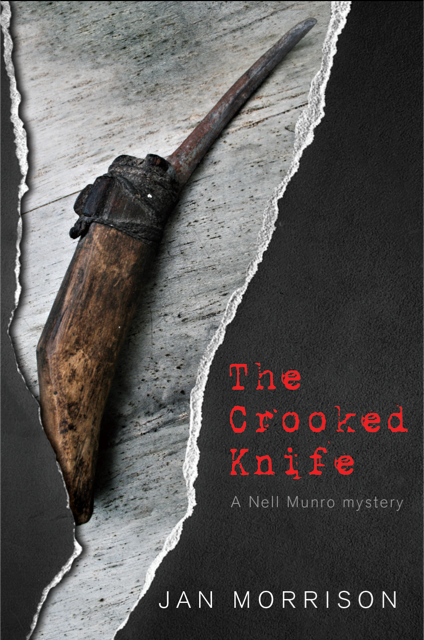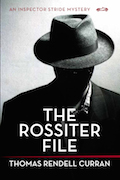Description
Ben Tucker’s oil truck drives toward a fishing outport, never to arrive. A surprise visit forces a widow to face her husband’s murder, 20 years later. A chief coroner tackles his last case, willing it to be anything but boring. An impenetrable manuscript and the mysterious couple who may—or may not—have written it. These are just a few of the images from Azzo Rezori’s first book of short stories.
Rezori’s keen eye for the quirky details of everyday life and graceful wordsmithing drive this unusual, remarkable collection. Enjoy the ride as he deconstructs issues of the heart and mind: religion, love, death, shattered relationships, and family entanglements.





jac –
Rezori shows a honed sense of import and timing. Joan Sullivan, The Telegram, Saturday December 2 2017
For several years I had the honour of being a judge for the Cuffer Prize, which awarded works of short fiction. I remember a comment fellow judge and accomplished writer Russell Wangersky made, that people often wrote just a bit too long, that the pieces would be stronger is the last few lines were cut. Short stories are about coming in on the scene, but also exiting with style and tempo.
In the 20-plus stories here, Azzo Rezori demonstrates some skill with this technique, especially in the shorter works (some run only a half dozen pages). Maybe his many years as a journalist have helped give him a honed sense of import and timing. His own creativity also led him to add short openers, descriptions of the fiction’s “event horizon” that lend a palimpsest overlay.
“Every story has an event horizon,” Rezori explains in his “Prologue.” “a paper rose blowing across Mount Carmel cemetery, a pothole at the bottom of Springdale Street, the foghorn bellowing at Fort Amherst, a bevy of tipsy artists crossing Duckworth Street … “And, indeed these narrative flankers flicker through these stories.
There’s a craftsman-like structure to Rezori’s prose.
The kernel of short fiction (or any fiction, really) is a character with a problem. They try, perhaps repeatedly, to solve it, and either succeed or fail. This outcome is acknowledged in a manner that feels earned and validating.
In “Ben Tucker’s Truck,” Alphonus Doody, widower, feeds pigeons, which is something his wife, Betty, used to do, and then reaches for a beer, which is something he now always does, only to find he’s out of supplies. On the wall by the fridge is a calendar, which shows the titular truck. It’s a static object, “forever rounding the last bend.” Yet it also resonates with the life moving around him, as if he were a rock in a river, as he will witness when he walks to the corner store.
In “The Visit,” Cora Thornhill is interrupted in the middle of her vacuuming. She’s not expecting anyone and really not anticipating an RCMP officer with “new information on your husband’s death.” And yet she’s not surprised.
“I thought at the time, and I still do, that three bullets, one to the head and two in the chest, is more than you’d expect from an ordinary robbery, even in Jamaica.” But the extra details the police have unearthed might only serve to deepen the mystery.
Then there’s the potluck supper in “Do you Love Me?” It presents a full menu of cuisine and personal interactions, shared histories and pockets of self-imposed isolation.
Many of the characters are in a gap, a lacuna. The unnamed protagonist in “The Fog” awakes to the fifth day since her boyfriend, Steve, absconded, leaving a note (“I’ll be back”) on the kitchen table. Anything might fill that space now open inside her: the fog, the foghorn, a conversation with a waitress, a well-phrased personal ad: “He’d have to like reading books and listening to music and walking on beaches, not because those were her favourite things but as a safeguard against coarseness.”
A misdialed number in “The Phone Call” sends Peter, out on a cross country ski by the airport, careening into a questioning spiral. It’s first annoying, then concerning. The young man on the other end might be in genuine trouble, as so many kids are these days. “The world was crawling with baby boomers who’ve been herding their children into the reservations of teen culture so they can claim the realm of youth all for themselves. Parents everywhere were acting younger than their own kids.” Then again, what kind of parent and role model has Peter been himself? Just as “A high snowdrift cut across the trail and forces Peter to herring-bone his way over it. Halfway down the other side he lost his nerve and fell.”
There’s a craftsman-like structure to Rezori’s prose. “Every fisherman’s woman constructs a widow’s walk on the roof of her heart, the place she paces when another storm hits and the men’s radio voices turn to garble and then to static.” Just as there is an arc and rhythm to the stories: interplays of crises of mental instability, religion, age. A couple tackle, head-on, ideas about God, and these are a bit heavy-handed, slacking the cadence and impression. The more quotidian, down to earth writing is more solid, with characters ranging from a teenage girl suffering with depression to a retiring coroner probing just what caused a man to keel over in his garden. In Rezori’s stories the ordinary is the more elegant access to the remarkable.
Joan Sullivan is editor of Newfoundland Quarterly magazine. She reviews both fiction and non-fiction for The Telegram.